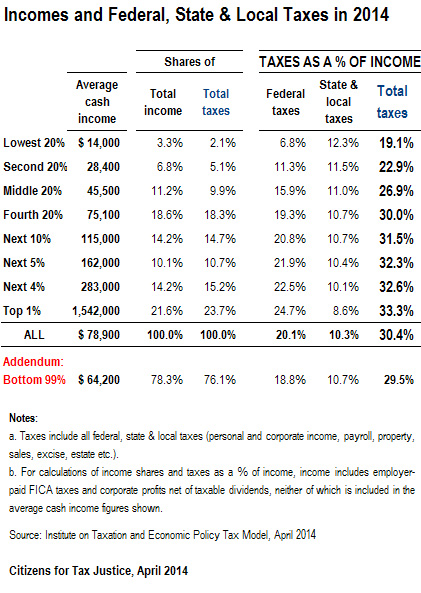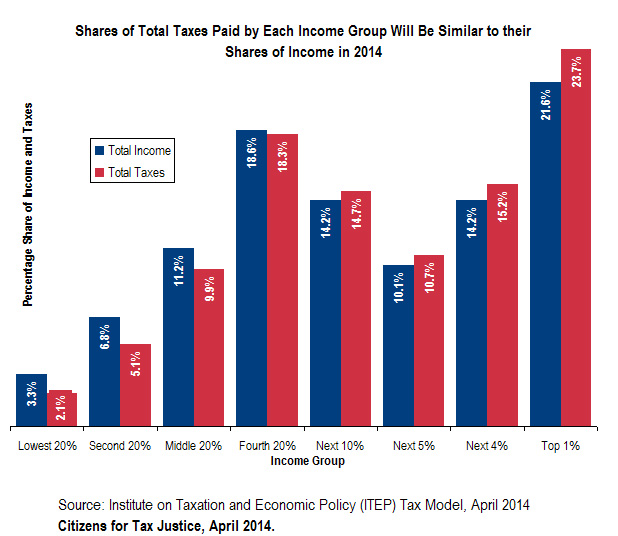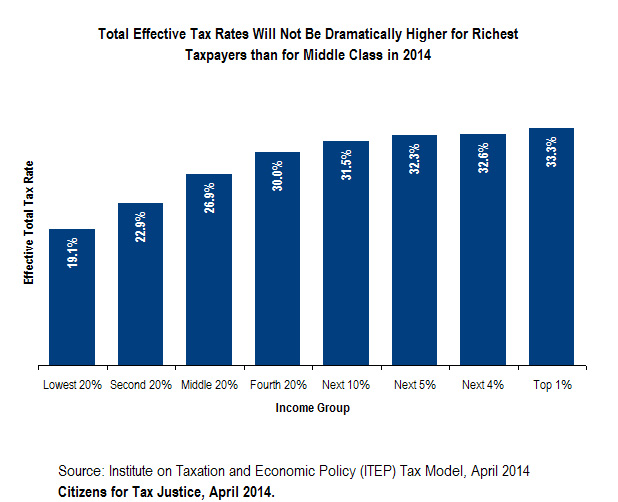April 7, 2014 12:02 PM | Permalink | ![]()
All Americans pay taxes. Everyone who works pays federal payroll taxes. Everyone who buys gasoline pays federal and state gas taxes. Everyone who owns or rents a home directly or indirectly pays property taxes. Anyone who shops pays sales taxes in most states.

The nation’s tax system is barely progressive. Those who argue that the wealthy are overtaxed focus solely on the federal personal income tax, while ignoring the other taxes that Americans pay. But, as the table to the right illustrates, the total share of taxes (federal, state, and local) that will be paid by Americans across the economic spectrum in 2014 is roughly equal to their total share of income.
Many taxes are regressive, meaning they take a larger share of income from poor and middle-income families than they do from the rich. To offset the regressive impact of payroll taxes, sales taxes and even some state and local income taxes, we need federal income tax policies that are more progressive.
Some features of the federal income tax try to offset the regressivity of other taxes, at least to a degree. For example, the federal personal income tax provides refundable tax credits such as the Earned Income Tax Credit (EITC) and the Child Tax Credit, which can reduce or eliminate federal personal income tax liability for working families and even result in negative personal income tax liability, meaning families receive a check from the IRS.
These tax credits are only available to taxpayers who work, and who therefore pay federal payroll taxes, not to mention the other taxes that disproportionately affect low- and middle-income Americans. In other words, progressive provisions in the tax code are justified because they offset some of the regresssivity of other taxes that poor and middle-income families pay.
The estimates from the Institute on Taxation and Economic Policy tax model, which are illustrated in these charts and tables, include the following key findings:
■ The richest one percent of Americans pay 23.7 percent of total taxes and receive 21.6 percent of total income.
■ The poorest one-fifth of Americans pay 2.1 percent of total taxes and receive 3.3 percent of total income.
■ Each income group will pay a total share of taxes that quite is similar to each group’s total share of income.
■ Contrary to popular belief, when all taxes are considered, the rich do not pay a disproportionately high share of taxes. Of course, in a truly progressive tax system, they would pay much higher effective tax rates than everyone else.





